The roundtable «Business and Climate Change», hosted by the Directors’ Climate Forum, a.k.a The Russian Chapter — in cooperation with its intellectual partner, Deloitte CIS and legal partner, DLA Piper marked a successful start for the Chapter in discussing the climate agenda for Russian business, and board directors in particular.
The roundtable co-chairs, founders of the Russian Chapter, Olga Pascault, chair of the management board, member of the International Advisory board at APQ Global, and independent director at NESsT UK, together with, Elena Haykin (Sapozhnikova), a member of the management board, partner of the Digital Horizon investment group, andsenior independent director of PJSC Inter RAO ”, introduced the participants to the goals and objectives of the Russian Chapter Climate Forum.
The Russian Chapter serves as the Russian hub for the global platform on climate change that operates under the auspices of the World Economic Forum’s Climate Governance Initiative (CGI), and supports boards of directors, company management, and committee chairs. The Initiative has already seen the launch of national Chapters in eight G20 countries, including Russia. By convening the Climate Governance Initiative (CGI), the World Economic Forum is helping to build the competencies of company directors to enable them to place climate change at the heart of business strategy and board decision-making processes.
The following well-known international and Russian experts in the field of climate risk management spoke at the event: Silvio Dulinsky, Head of the CGI of the World Economic Forum; Ivan Kukhnin, Partner, Deloitte CIS Sustainability Services Group;Karina Litvack, Founder of The Climate Governance Initiative, a.k.a. Chapter Zero, Member of the Board of Directors of Eni S.p.A; Tatyana Mitrova, Director of the Energy Center of the Moscow School of Management Skolkovo, Member of the Boards of Directors of PAO NOVATEK and Schlumberger, David Nicholls, Deputy Chairman of the Russian Association for Corporate Governance API, Portfolio Manager at East Capital, Alec Van Vaerenbergh, Counsel at DLA Piper, Nadya Wells, Independent member of the Supervisory Board of Sberbank, Chairman of the AuditCommittee, member of the Strategic Planning Committee and the Risk Management Committee.
The speakers stressed the importance of the climate agenda for business and introduced the participants to the latest trends and changes in regulation. They also discussed approaches to managing relevant risks, together with the strategy of companies and regulators.
Silvio Dulinsky, in particular, spoke about the need for acollaborative action in the context of climate change. Companies bear a huge responsibility, and in order to solve problems, it is necessary to build a corporate governance system. Boards of directors must be the engine of this change.
Ivan Kukhnin, presented a study by Deloitte CIS, a leader in sustainable development. The Deloitte CIS survey among CFOs showed good awareness of climate change. Among the measures used are the transition to renewable energy sources, energy efficiency, etc. At the same time, Ivan noted that so far the focus is on the company’s impact on the environment, not the climate’s impact on the company’s strategy.Ivan spoke about the latest changes in the regulation climate agenda in Russia and other countries, the practice of Russian and foreign companies, key tools for building a climate strategy, and the stages of implementation of the recommendations of the Task Force on Climate-Related Financial Disclosures (TCFD).
Karina Litvack has been leading Chapter Zero for almost five years. In her remarks, Karina drew attention to the fact that central banks of different countries, including Russia,have realized that climate change poses a serious risk to global systemic financial stabilityand are working to introduce new prudential oversight rules to drive change in how banks and insurers lend and underwrite risk.Directors need practical advice, and the opportunity to discuss climate issues with experts, investors, government agencies, scientists; in this regard, the creation of such platforms adds great value to boards of directors by providing directors with the necessary knowledge and tools.
Alec Van Vaerenbergh noted that the EU is working on a new set of policy goals and binding regulations in respect of its efforts to combat climate change. Provided the EU Member States follow the Commission’s upcoming proposal to this effect, there will be great impact from the EU’s revision of its goal to reduce its greenhouse gas emissions by 2030 from the initial amount of 40% to the substantially higher amount of 55%. Alec highlighted that the EU’s Emission Trading System (ETS) will be the key instrument for effectively ensuring that such reductions are achieved across the EU. Alec concluded that in any event Russian companies producing in the EU or importing to it, need to understand and anticipate all the requirements of EU climate regulations and engage with EU stakeholders in order to be best positioned when the new rules take effect.
David Nicholls explained why the issue of climate change is so important for investors, with a focus on materiality. He showed how East Capital integrates climate risk into their investment process, and how a company’s value can depend on how their executives and boards manage climate-related risks. For many Western investors, climate change is a priority engagement issue, and David recommended that directors discuss with investors their expectations and experiences with other companies.
Tatyana Mitrova, as a member of the board of directors of the two largest energy companies, recommended not to postpone changes in the business strategies of companies for the long term, but already now to change the mentality of both board members and top managers regarding the climate agenda, since in Russia it is perceived complimentary rather than essential.
In conclusion, Nadya Wells, independent director and Chair of the Audit Committee of Sberbank, said that implementation is key and integrating climate risk management into daily business practices will be an important part of long-term strategy going forward. She stressed that while banks are a systematically important part of the economy, the climate risk journey needs to be a collective one, involving clients from all sectors, regulators, and employees, who are important advocates for change.
Olga Pascault
Founder and Chair of Management Board
Elena Haykin
Founder and Member of Management Board


